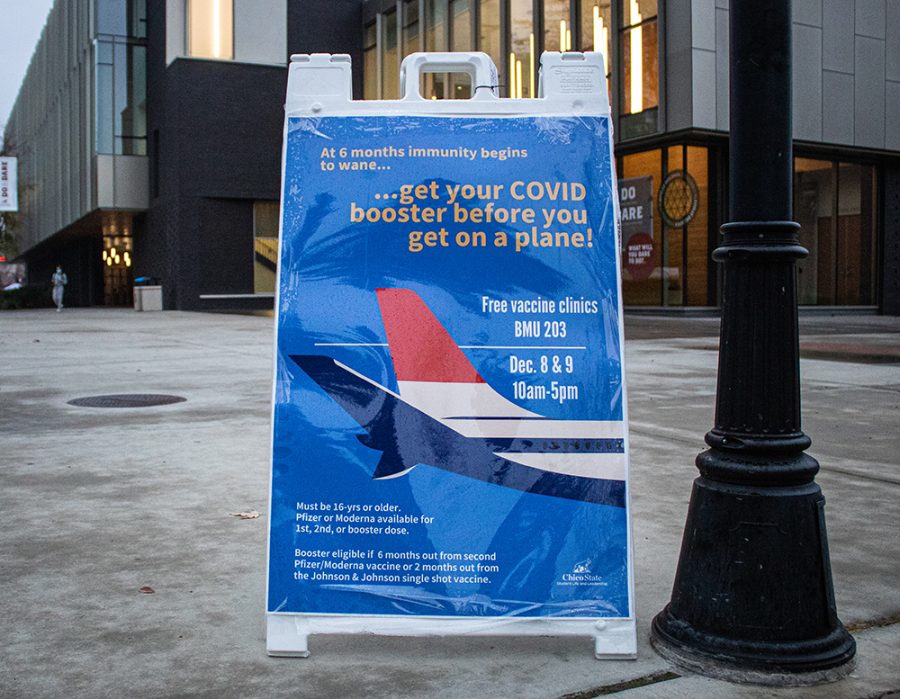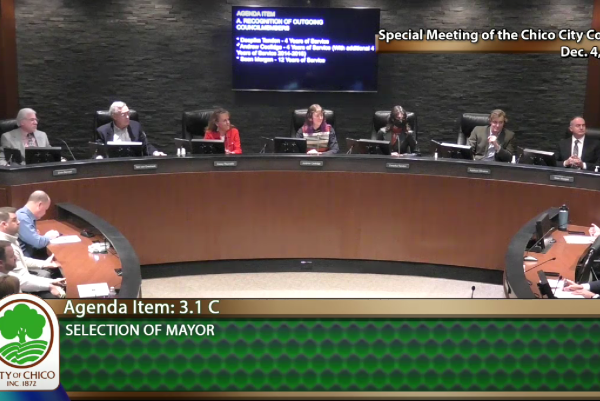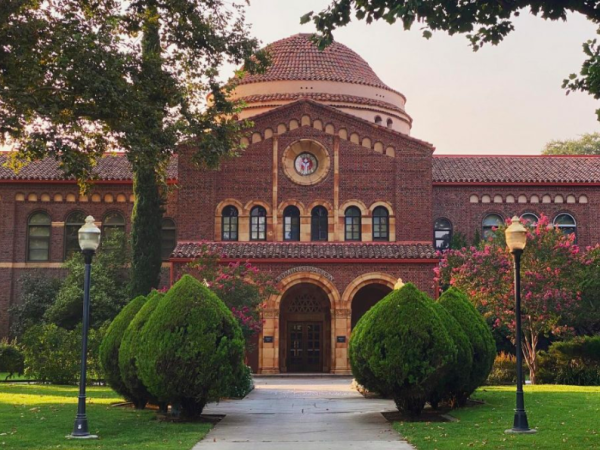Chico State booster clinic opens on campus amid omicron rise
Chico State will be hosting walk-in booster clinics on campus in the Bell Memorial Union on Dec. 8-9 from 10 a.m. to 5 p.m. Photo taken by Ava Norgrove on Dec. 6
On Tuesday Nov. 30, Chico State announced the opening of walk-in booster clinics on campus in the Bell Memorial Union on Dec. 8-9 from 10 a.m. to 5 p.m.
Chico State has partnered with Rite Aid to offer booster shots to the public for those 18 and older who received the Pfizer or Moderna vaccine over six months ago, or the Johnson & Johnson vaccine over two months ago. The clinic will also offer first and second doses of the Moderna and Pfizer vaccine to anyone who is not yet fully vaccinated.
The college has suggested that students and faculty receive booster shots and encouraged them to bring family and friends to the clinic.
The Centers for Disease Control and Prevention and the World Health Organization highly encourage individuals to get a booster for the vaccine due to lowered effectiveness of initial doses over time. Along with this, cases of the omicron variant of the COVID-19 virus continue to rise in the U.S., with several dozen cases reported by the CDC in at least 17 states, and is now listed as a “variant of concern” by the WHO. Preliminary findings suggest a higher infection and hospitalization rate with omicron than current variants of the virus.
The booster clinic on campus will allow participants to choose which vaccine they want to receive, regardless of which initial dose(s) they were administered.
Which booster type should individuals get?
Well, that depends.
Initial “mix and match” booster studies, show that individuals who are vaccinated with two doses of the Moderna and Pfizer vaccine and received a booster of a different type than their initial dose saw an antibody increase at similar or increased amounts to those who received a dose the same type as their initial vaccine dose.
In the same study, those who received the single-shot J&J vaccine saw a much larger increase in antibodies when receiving a Moderna or Pfizer booster than those who received a booster of J&J. Researchers have yet to determine why, but believe it may be linked to differing technology used within Moderna and Pfizer vaccines versus J&J.
The study was meant to ensure the safety of “mix and match” booster combinations, rather than the most effective. It has yet to be peer-reviewed and so findings are still inconclusive.
In general, the WHO and the CDC say that any booster is better than none.
Both organizations state that individuals may choose whichever booster they would like to receive and should decide based on personal preference.
Ava Norgrove can be reached at [email protected]








